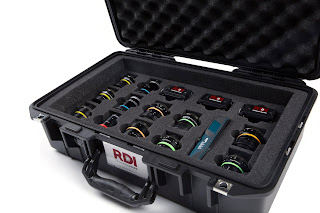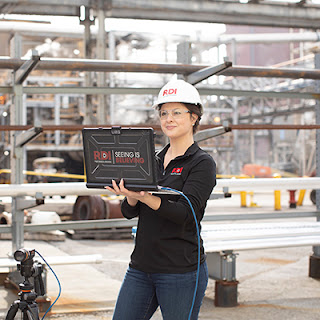5 Tips for Maintaining and Optimizing Production When Demand Increases
A sudden increase in manufacturing demand is great news, but it can
create challenges on the manufacturing floor. While increased demand for
a product represents positive growth and profit, that spike can prove
chaotic on the production floor. Pushing too hard without sufficient
preparation can even potentially result in costly process breakdowns.
Preparing a production floor to successfully accommodate a spike in
demand relies on seeking solutions related to both staff and mechanical
production assets. Ensuring that employees are prepared with additional
training is as important as ensuring production assets are efficiently
functioning with effective vibration monitoring technology.
Maximize the Output Capacity of Production Assets
On most production floors, the machinery is not operating at maximum capacity. Manufacturing and production companies tend to run with a “capacity cushion,” both to avoid taxing the equipment and to accommodate downtime or increase in demand. The arrival of that demand increase is the time to remove the capacity cushion and run at maximum capacity. If possible, prepare ahead of an expected spike by performing maintenance and using completely non-contact vibration technology to monitor assets while they handle additional workloads.
Guarantee Assets Are Functioning Efficiently with Maintenance
Running at maximum capacity and efficiency, or running at all, is contingent upon production assets remaining in good working order. Confirming both that the machinery is operating at full efficiency and that it is not at risk of failure or malfunction is best accomplished with vibration analysis. Traditionally, a drawback of vibration monitoring was the downtime necessary for setting up the contact vibration sensors, removing them, and then analyzing the data.
Reduce Asset Downtime with Completely Non-Contact Vibration Monitoring
Instead of relying on contact sensors, opt for completely non-contact vibration analysis equipment like the Iris M™ platform from RDI Technologies. The Iris M™ platform is powered by Motion Amplification® technology to provide analysis that’s just as accurate as contact sensors. Plus, it delivers easily-understood data in real-time, with none of the downtime.
Increase Production Time by Adding Available Work Hours
In addition to reducing downtime, a spike in production may call for an increase in production time. There are a few ways that those production schedule increases can be managed. It may mean keeping the production floor online for more hours during the day. Creating new shifts, authorizing overtime, or hiring additional staff to cover the new hours may be necessary.
Train and Incentivize Employees to Increase Performance
An increased production schedule is going to represent a new workplace dynamic for employees. That change should be accompanied by transparent communication about what that new dynamic is likely to look like and what the new expectations, quotas, and responsibilities will be. Taking time to provide additional training upfront can save a lot of time later on. Additional output, responsibilities, and expectations are always going to be more enthusiastically accepted by staff when they’re accompanied by corresponding incentives. Those incentives could include overtime hours at a higher wage and production goal bonuses.
About RDI Technologies
RDI Technologies has revolutionized what predictive maintenance and machine condition monitoring can be. Their Iris M™ platform is an innovation that turns every pixel in a camera’s view into a sensor. Those millions of sensors are a vital part of the company’s Motion Amplification technology, which makes vibration and movement that is otherwise invisible to the human eye visible. The result is a real-time visualization of any problematic vibration, which can be used to quickly identify root-cause issues. RDI Technologies’ Iris M™ image processing software converts that raw information into an informative and meaningful visualization that communicates essential information clearly to technical and non-technical staff. It’s a completely non-contact vibration monitoring technology that requires no downtime of your critical assets.
Find out what RDI Technologies’ Motion Amplification® technology can do for your production floor, at Rditechnologies.com
 |
| Vibration Monitoring |
On most production floors, the machinery is not operating at maximum capacity. Manufacturing and production companies tend to run with a “capacity cushion,” both to avoid taxing the equipment and to accommodate downtime or increase in demand. The arrival of that demand increase is the time to remove the capacity cushion and run at maximum capacity. If possible, prepare ahead of an expected spike by performing maintenance and using completely non-contact vibration technology to monitor assets while they handle additional workloads.
Guarantee Assets Are Functioning Efficiently with Maintenance
Running at maximum capacity and efficiency, or running at all, is contingent upon production assets remaining in good working order. Confirming both that the machinery is operating at full efficiency and that it is not at risk of failure or malfunction is best accomplished with vibration analysis. Traditionally, a drawback of vibration monitoring was the downtime necessary for setting up the contact vibration sensors, removing them, and then analyzing the data.
Reduce Asset Downtime with Completely Non-Contact Vibration Monitoring
Instead of relying on contact sensors, opt for completely non-contact vibration analysis equipment like the Iris M™ platform from RDI Technologies. The Iris M™ platform is powered by Motion Amplification® technology to provide analysis that’s just as accurate as contact sensors. Plus, it delivers easily-understood data in real-time, with none of the downtime.
Increase Production Time by Adding Available Work Hours
In addition to reducing downtime, a spike in production may call for an increase in production time. There are a few ways that those production schedule increases can be managed. It may mean keeping the production floor online for more hours during the day. Creating new shifts, authorizing overtime, or hiring additional staff to cover the new hours may be necessary.
Train and Incentivize Employees to Increase Performance
An increased production schedule is going to represent a new workplace dynamic for employees. That change should be accompanied by transparent communication about what that new dynamic is likely to look like and what the new expectations, quotas, and responsibilities will be. Taking time to provide additional training upfront can save a lot of time later on. Additional output, responsibilities, and expectations are always going to be more enthusiastically accepted by staff when they’re accompanied by corresponding incentives. Those incentives could include overtime hours at a higher wage and production goal bonuses.
About RDI Technologies
RDI Technologies has revolutionized what predictive maintenance and machine condition monitoring can be. Their Iris M™ platform is an innovation that turns every pixel in a camera’s view into a sensor. Those millions of sensors are a vital part of the company’s Motion Amplification technology, which makes vibration and movement that is otherwise invisible to the human eye visible. The result is a real-time visualization of any problematic vibration, which can be used to quickly identify root-cause issues. RDI Technologies’ Iris M™ image processing software converts that raw information into an informative and meaningful visualization that communicates essential information clearly to technical and non-technical staff. It’s a completely non-contact vibration monitoring technology that requires no downtime of your critical assets.
Find out what RDI Technologies’ Motion Amplification® technology can do for your production floor, at Rditechnologies.com



Comments
Post a Comment